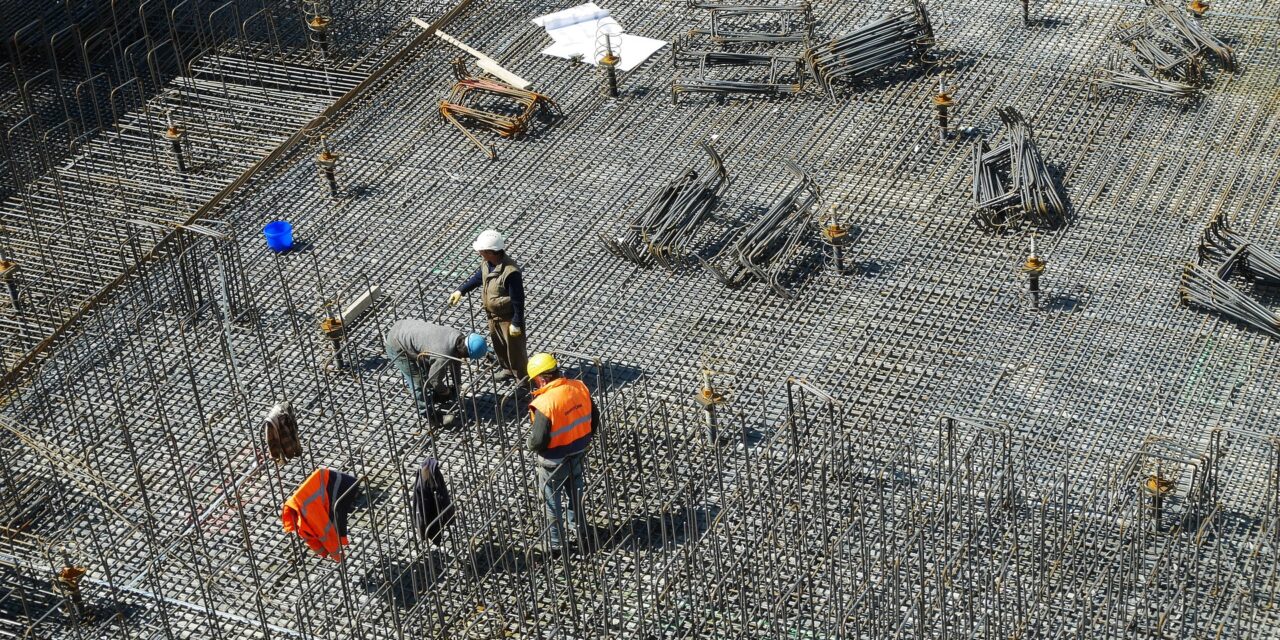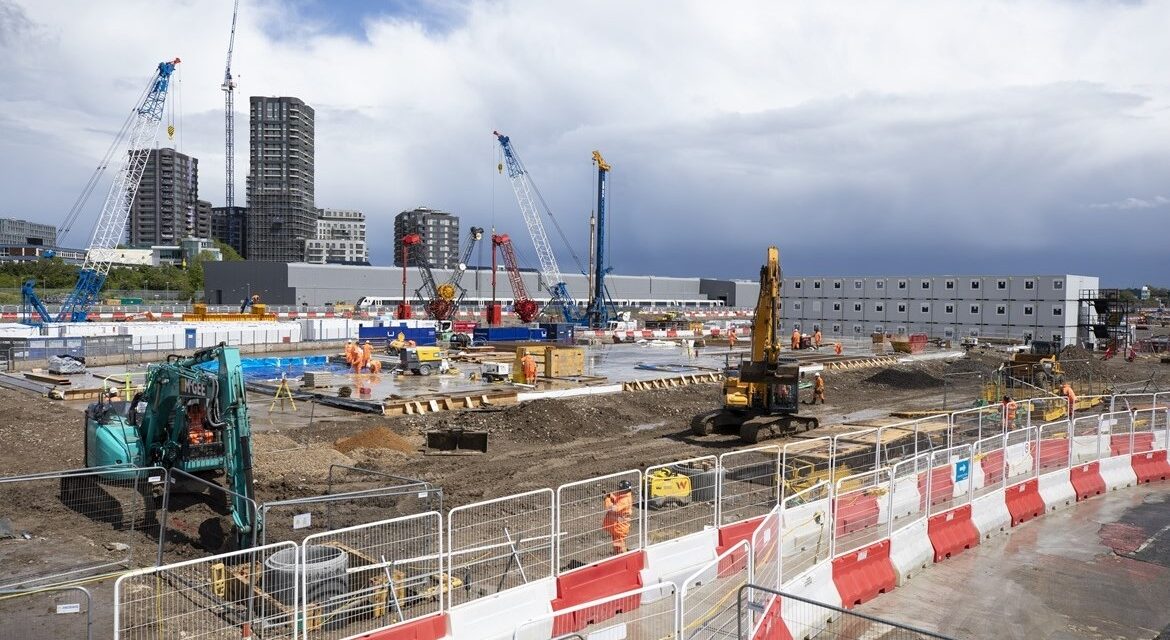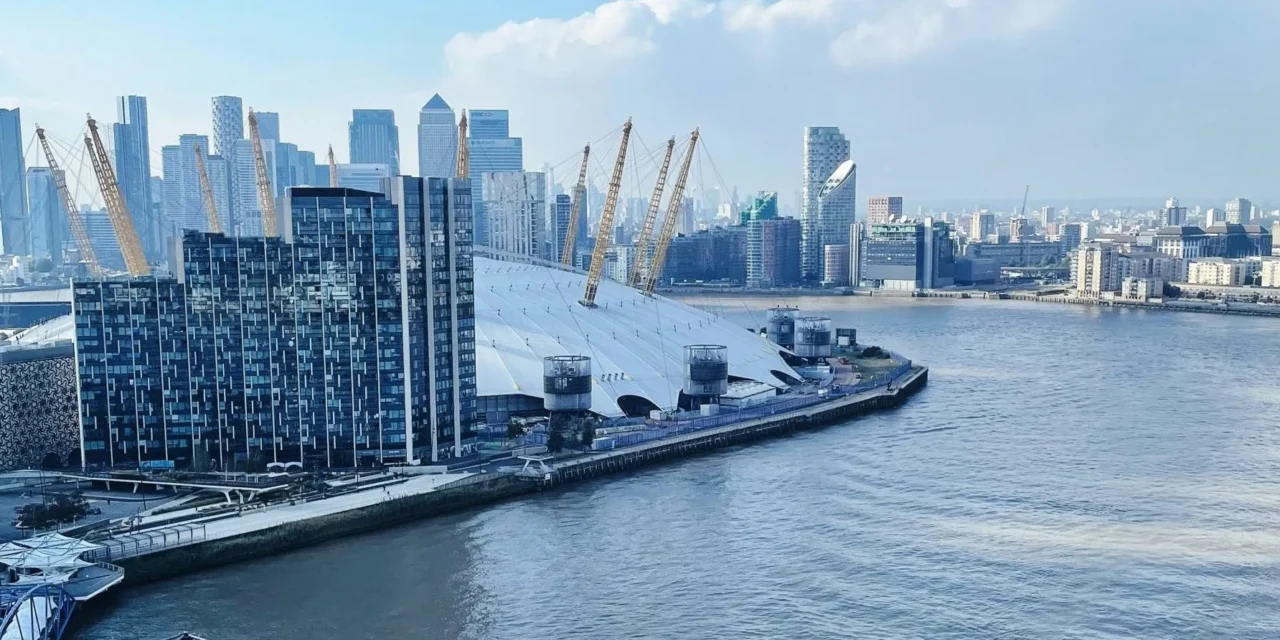
The arrival of GRS Group’s latest batch of Mercedes-Benz trucks means the operator is now running the country’s biggest fleet of low-entry Econic tippers.
The three new trucks take GRS Group’s Econic line-up to 15 – all are 3235 models, and were delivered by Dealers Motus Truck & Van and Sparshatt Truck & Van. Based at depots in Rainham, Kent, and Bow, East London, they are currently working full-time on construction projects in Central London related to the HS2 high-speed rail link.
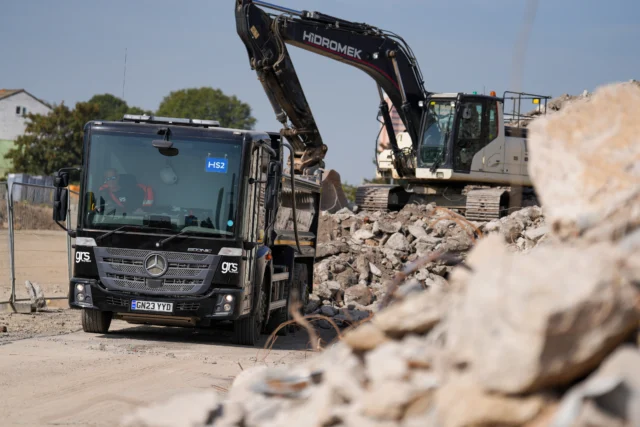
They were chosen for the unrivalled field of view offered from the driver’s seat, a key factor in allowing the Econic to achieve the highest possible rating from Transport for London’s Direct Vision Standard – a full five stars.
But that’s not all they offer. The Econic combines this significant attribute, which helps make it one of the safest trucks on the road for both operating crews and other road users, combined with proven Mercedes-Benz build quality, reliability and Dealer support.
GRS’s trucks are powered by 7.7-litre six-cylinder engines that produce 260 kW (354 hp) and drive through 12-speed Mercedes PowerShift 3 automated manual transmissions. The operator chose ENA configuration chassis, with single front steer axles, double-drive bogies and rear-steer axles, which allow for an impressively tight turning circle. The resulting, enhanced manoeuvrability compared to a standard 32-tonne construction eight-wheeler is a major advantage for operation in the capital.
The Econic’s deep, panoramic windscreen and the full-height, glazed folding side door chosen by GRS afford unbeatable visibility. Coupled with a seating position which is much lower than that of a conventional construction vehicle, this allows drivers to make direct eye contact with vulnerable road users, particularly cyclists and pedestrians, a major advantage in enabling each to understand the other’s intentions.
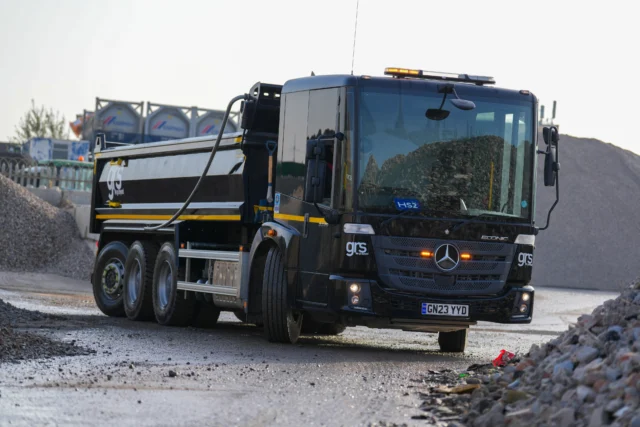
The vehicles are also equipped with Active Brake Assist 5 emergency braking technology, which boasts an industry-leading pedestrian recognition capability, and an Electronic Parking Brake that is applied automatically when the engine is switched off.
They were acquired with competitively priced funding from Daimler Truck Financial Services, and will be maintained on Mercedes-Benz Service Contracts. All 15 have Thompsons Loadmaster Lite tipping bodies and are fitted with Samsara telematics.
Matthew Johansson, GRS Group’s Plant & Logistics Director, said: “Our decision to invest so heavily in the Mercedes-Benz Econic was driven by a desire to go beyond minimum requirements and set the highest possible standards for safety, while at the same time future-proofing our fleet against any tighter future restrictions. We believe these trucks are the best option available for work in the busy urban environment of London.
“The low-entry cab makes life easier and safer for our drivers – the reduced height floor means the cab is very easy to access, while the seating position allows them to keeps a much closer eye on other road users. We take our responsibility to operate in the safest way possible very seriously, so this package made the Econic a very attractive choice.”
He continued: “The trucks have now been well proven in a tough application – removing excavated materials from HS2 sites. We took the first examples early this year and the most recent arrived in October. Between them they’ve already shifted the best part of a million tonnes of construction spoil, and they often deliver aggregates on the return leg of their journeys too. I’ve no doubt we’ll be adding more soon.”
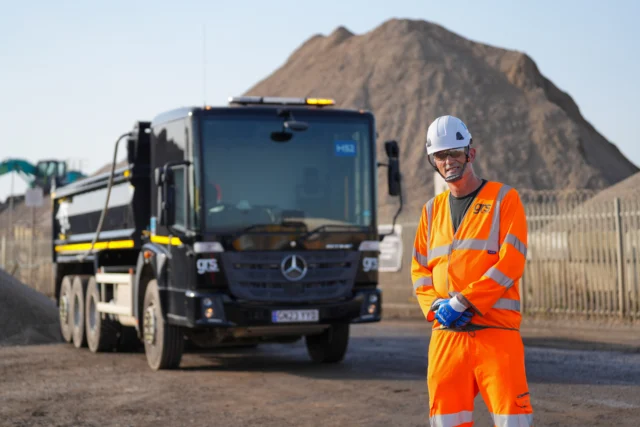
Mark Starosolsky, Logistics Director for HS2 contractors SCS JV, added: “GRS have proved themselves to be a trusted partner with their investment in five-star Direct Vision Standard tippers.
“These Econics, with their lower driving position, place the driver at the same level as vulnerable road users. The cab design, with much larger windows, maximises visibility while minimising the blind spots present in traditional truck design.
“We’re committed to using the safest vehicles available and are please we could work with GRS to support this investment to deliver our programme.”
Driver Peter Watson is among those tasked with piloting a GRS Econic in and out of London. He added: “Some of the guys were unsure about the cab design when we first started with these vehicles – being so low down is not what we’ve traditionally been used to in a construction truck.
“However, we were all quickly won over. The panoramic view and the fact that you’re much closer to other people on the road makes the job of negotiating busy city streets much less stressful. As an all-round package the Econic is unbeatable for this role.”
As with all new Econics supplied through the manufacturer’s UK Dealer network, GRS Group’s trucks are covered by a three-year/160,000 km warranties.


